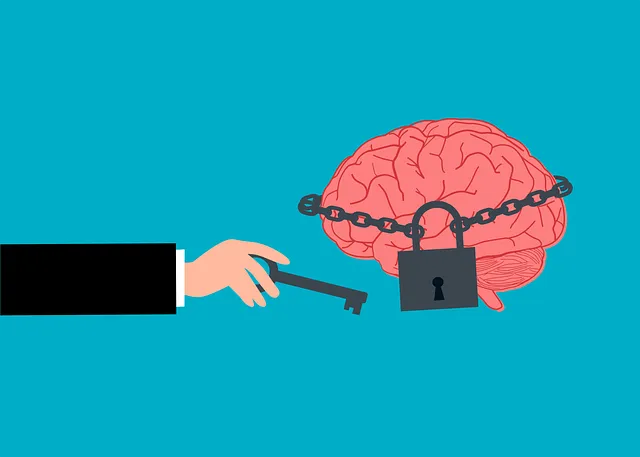Cultural competency at Kaiser Permanente's behavioral health center in Boulder goes beyond language translation, focusing on understanding and respecting diverse cultural values and beliefs. Through specialized training, emotional intelligence development, conflict resolution techniques, and comprehensive programs tailored to mood management, stress reduction, and emotional regulation, the center improves healthcare quality, trust, and outcomes for patients from various backgrounds. This commitment positions Kaiser Permanente Boulder as a leader in behavioral health services based on cutting-edge research and best practices. Effective training models include open dialogue environments and EI development, while ongoing assessments, focus groups, and workshops sustain cultural competency among healthcare providers.
Cultural competency is an essential aspect of modern healthcare, ensuring providers understand and respect diverse patient backgrounds. This article explores this critical topic, highlighting the role of organizations like Kaiser Permanente Behavioral Health Center Boulder in fostering cultural sensitivity. We delve into key components of effective training programs and best practices for measuring and sustaining cultural competency. By examining these strategies, we aim to enhance healthcare delivery, particularly within the context of Kaiser Permanente’s innovative approaches.
- Understanding Cultural Competency in Healthcare: A Necessary Approach
- The Role of Kaiser Permanente Behavioral Health Center Boulder
- Key Components of Effective Training Programs
- Measuring and Sustaining Cultural Competency: Best Practices
Understanding Cultural Competency in Healthcare: A Necessary Approach

Cultural competency is an essential aspect of healthcare that has gained significant attention in recent years, especially with the diverse patient populations Kaiser Permanente behavioral health centers like the one in Boulder serve. It goes beyond basic language translation and involves understanding and appreciating the cultural nuances, values, and beliefs of individuals from different backgrounds. This approach ensures that patients receive care tailored to their unique needs and promotes better health outcomes.
The need for cultural competency training is evident when considering the impact of unaddressed cultural barriers on mental wellness. Emotional intelligence, a key component in this training, enables healthcare providers to recognize and manage their emotions and those of their patients, fostering a supportive environment. Additionally, conflict resolution techniques play a vital role in navigating sensitive situations, ensuring effective communication and respectful interactions, ultimately enhancing patient satisfaction and trust.
The Role of Kaiser Permanente Behavioral Health Center Boulder

The Kaiser Permanente Behavioral Health Center Boulder plays a pivotal role in promoting cultural competency within healthcare. As a leading provider of behavioral health services, the center is committed to ensuring that all patients receive care tailored to their unique cultural backgrounds and needs. Through comprehensive training programs, they equip healthcare professionals with the knowledge and skills required to deliver sensitive, effective treatment. This includes specialized courses on topics such as mood management, stress reduction methods, and emotional regulation, all designed to address the specific challenges faced by diverse patient populations.
By fostering an environment of cultural understanding and empathy, Kaiser Permanente Boulder helps bridge the gap between healthcare providers and patients from various ethnic, racial, and socioeconomic backgrounds. This approach not only enhances the quality of care but also fosters trust and improves outcomes for everyone involved. The center’s dedication to these principles underscores its reputation as a beacon of excellence in behavioral health services, reflecting the latest research and best practices in the field.
Key Components of Effective Training Programs

Effective cultural competency training programs in healthcare settings, such as the Kaiser Permanente behavioral health center in Boulder, should incorporate several key components to ensure maximum impact. Firstly, they must foster an environment of open dialogue and active listening, encouraging participants to share their experiences and perspectives openly. This not only enhances understanding but also strengthens relationships between providers and patients from diverse backgrounds.
Secondly, training programs should prioritize the development of emotional intelligence (EI) skills among healthcare professionals. EI involves recognizing and managing one’s emotions, as well as empathizing with others. At the Kaiser Permanente behavioral health center Boulder, for instance, workshops might include activities that promote self-care routine development for better mental health and coping skills development. These strategies help providers maintain their well-being while delivering culturally sensitive care.
Measuring and Sustaining Cultural Competency: Best Practices

Measuring cultural competency is a crucial step to ensure that training initiatives are effective and sustainable. At the Kaiser Permanente behavioral health center in Boulder, they employ a multi-faceted approach. This includes pre-and post-training assessments to gauge knowledge gain and attitudinal shifts among healthcare providers. By comparing these results, the center can identify areas needing further emphasis or refinement. Moreover, ongoing feedback mechanisms, such as focus groups and 360-degree evaluations, provide valuable insights into how cultural competency training is being implemented and perceived within the workforce.
Sustaining cultural competency requires ongoing cultivation. The Kaiser Permanente behavioral health center in Boulder promotes this through regular workshops focused on Compassion Cultivation Practices, which not only enhance emotional well-being but also foster a deeper understanding of diverse patient populations. Additionally, they implement Burnout Prevention Strategies for Healthcare Providers, recognizing that burnout can significantly impede cultural competence. These strategies include work-life balance initiatives, self-care programs, and regular professional development opportunities to recharge and reinvigorate healthcare providers’ commitment to cultural competency.
Cultural competency training is an evolving necessity within healthcare, as exemplified by the comprehensive programs offered by institutions like the Kaiser Permanente Behavioral Health Center Boulder. By focusing on key components such as awareness, knowledge, communication skills, and collaborative partnership, these training initiatives equip healthcare providers to deliver more personalized and effective care. Implementing best practices for measuring and sustaining cultural competency ensures that these efforts translate into improved patient outcomes and stronger community relationships. Organizations like Kaiser Permanente play a vital role in fostering inclusive healthcare environments, ultimately enhancing the overall well-being of diverse populations.






